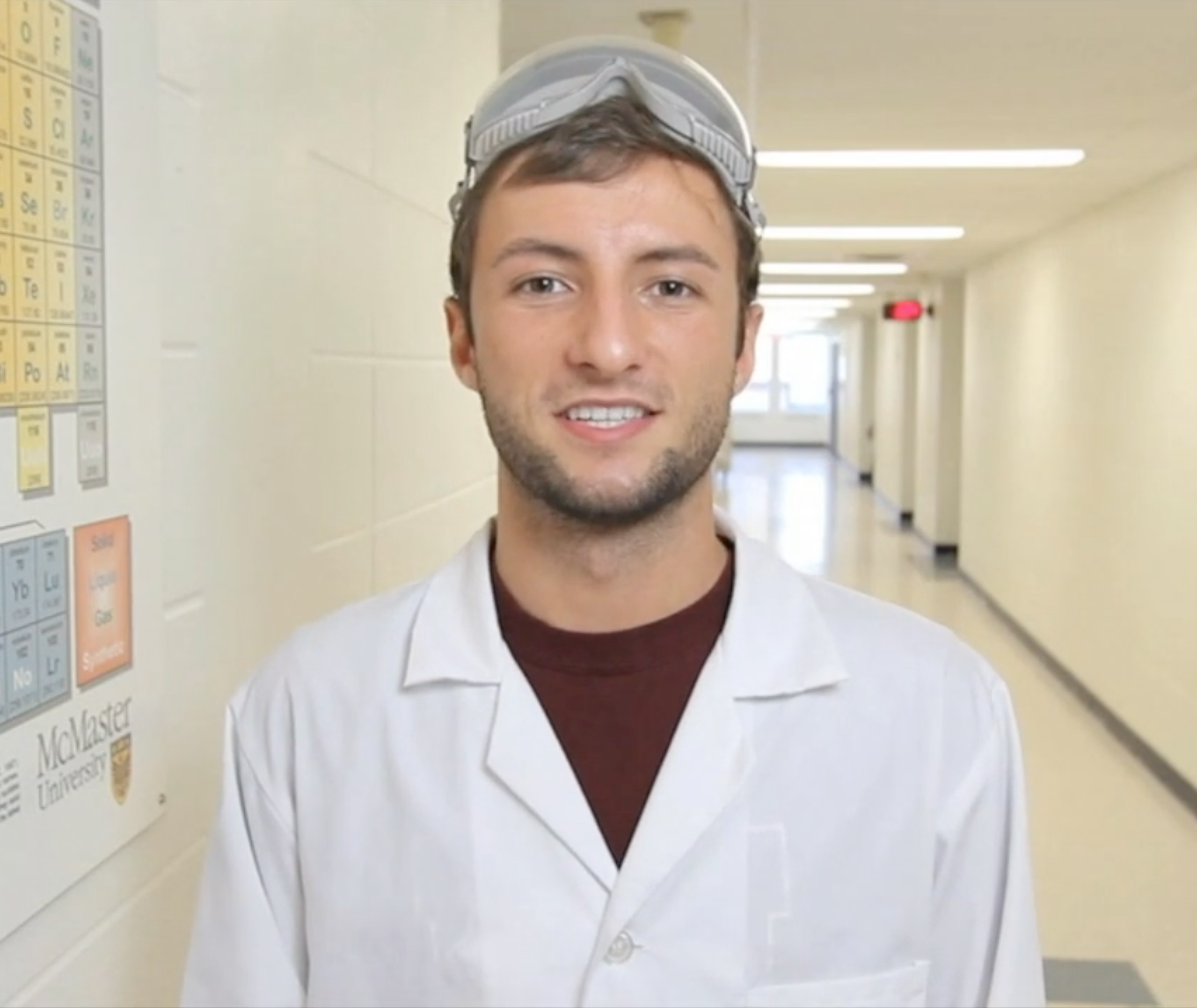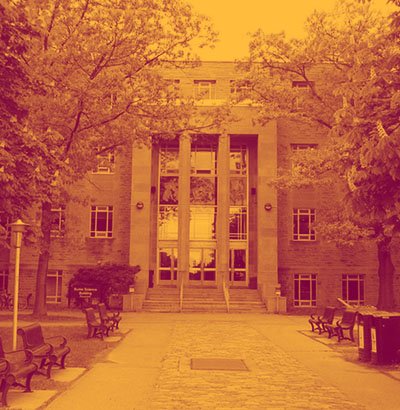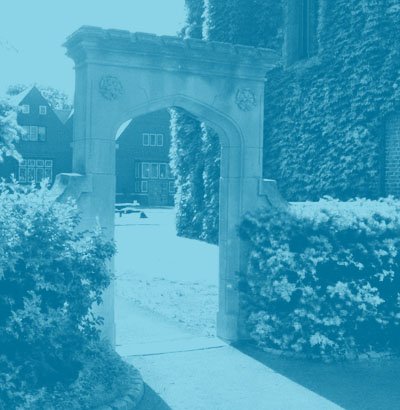Career Paths And Observations From Some Of Our Recent Graduates
What Do You Do Now?
- I try to breach the gap between small molecule and polymer chemistry for advanced materials applications.
Did Your Chemical Biology Degree Help You In Your Current Position?
- I did summer research as an undergraduate with Professor Harald Stover and was connected to Professor Craig Hawker in the process. I ended up conducting two co-op terms in Professor Hawker’s group before finally joining it as a Ph.D. student.
What Advice Do You Have For A First Year Student Considering Enrolling In A Chemistry Or Chemical Biology Program?
- The undergraduate education in McMaster’s Chemistry and Chemical Biology programs is world class. It is very rare to have such a group of diverse, intelligent professors who are willing to go above and beyond to mentor undergrads and help them become independent scientists. The program has an ideal student to faculty ratio, so you get to know all of your professors and classmates on a personal level.
- The absolute best part of the Department is the plethora of research opportunities for undergrads in all years. Since leaving McMaster, I have never found another school where the majority of undergrads get to do advanced research. I am extremely grateful that I was given those opportunities as it was crucial to my success in my career.
What Do You Do Now?
- I am now an articling student at Smart & Biggar, Canadian law firm specializing exclusively in intellectual property and technology law. I work primarily in patent and trademark litigation doing legal research, writing and drafting legal documents.
How Did Your Chemistry Degree Help You In Your Current Position?
- A lot of the litigation we deal with has to do with chemical patents, specifically patents related to polymer and materials science.
What Advice Do You Have For A First Year Student Considering Enrolling In A Chemistry Or Chemical Biology Program?
- Put effort into applying for research opportunities in the Department. There are many opportunities and they are very rewarding in terms of the skills you develop over the course of a summer. The more summers your work in the lab, the easier it is to figure out what type of chemistry is best suited to you.
What Do You Do Now?
- Analytical Chemist. Testing samples for external and internal clients. HPLC method development.
How Did Your Chemical Biology Degree Help You In Your Current Position?
- The co-op positions allowed me to try out working in different fields of chemistry. It also gave me opportunity to get hands-on experience with various instruments which would be helpful getting jobs in the industry.
What Do You Do Now?
- I am currently working at PharmaMedica Research Inc as a protocol writer. A typical day is writing protocols (as the name of the position suggests) for clinical research studies that explore the safety and efficacy of drug products which are not yet marketed.
How Did Your Chemistry Degree Help You In Your Current Position?
- Being enrolled in laboratory courses specific for Chemistry has helped me become more hands on and to be able to follow specific procedures. As a protocol writer with this kind of experience, it helped me to be able to write clear and concise protocols that are easy to follow and understand.
What Advice Do You Have For A First Year Student Considering Enrolling In A Chemistry Or Chemical Biology Program?
- Apply for summer research positions with professors (as early as 2nd year).
- Co-op program might take an extra year to finish your undergrad but the experience you gain is definitely helpful in the future!
Dominica - B.Sc. Honours Chemistry. Ph.D. Chemistry from University of North Carolina at Chapel Hill
What Do You Do Now?
- I am a Senior Chemist at Eastman Chemical Company. A typical day includes managing and steering complex projects, working with business organizations to create alignment and synergy between research and technology and market insights, and people management.
How Did Your Chemistry Degree Help You In Your Current Position?
- A bachelors and graduate degree in Chemistry are job requirements. I apply fundamental chemistry concepts in scientific projects every day.
What Advice Do You Have For A First Year Student Considering Enrolling In A Chemistry Or Chemical Biology Program?
- From my experience in the industry, I have realized that keys to success are not only the fundamental concepts that one learns from textbooks, but good communication skills and a sharp research acumen. Both of these skills can be developed in a small educational setting where students can interact with their professors and each other adequately, and have the resources to pursue their scientific curiosities. These were the aspects of the Chemistry program that I found most valuable in my career. At McMaster, I had opportunities to communicate, present and defend my research through laboratory coursework and the senior thesis project, giving me unique preparation for a job in the real world.
Career Resources

WEBSITE
Science Career & Cooperative Education
Our vision is to see every McMaster Science student reach their career potential and have a meaningful impact on the scientific community.

POP-UP




